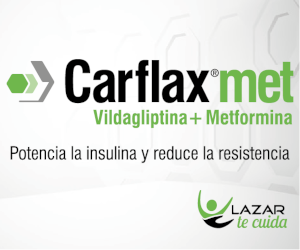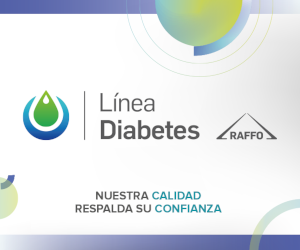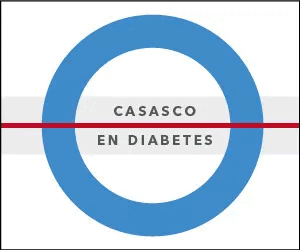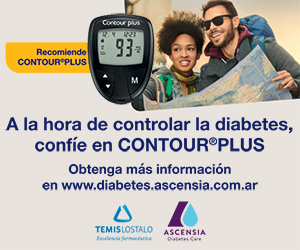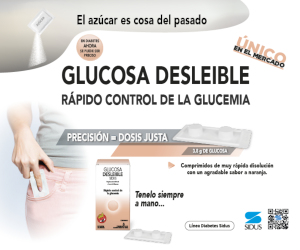Levels of specific antibodies (AB) for SARS COV2 post vaccination and its relationship with clinical and metabolic variables in people with type 2 diabetes vs. controls without diabetes. Special subsidy SAD 2021 "COVID-19 and diabetes mellitus"
DOI:
https://doi.org/10.47196/diab.v57i3Sup.701Keywords:
SARS-COV-2, post-vaccination, diabetesAbstract
Introduction: the COVID-19 pandemic has affected people all over the world, and even more seriously people with chronic pathologies such as diabetes mellitus. Driven by a global health emergency, vaccines for SarsCov2 have been developed at unprecedented speed. This study evaluated the humoral immune response (IgG specific for SARS CoV-2) in adults with type 2 diabetes (DM2) vs. controls without diabetes.
Objectives: primary: To evaluate the humoral immune response in adults with DM2 who have received two doses of any of the ANMAT-approved Sars-Cov2 vaccines versus the specific IgG Ab levels of a control group without diabetes. Secondary: To evaluate the relationship between Ab IgG titers and the presence of other clinical and biochemical variables and comorbidities, and compare whether there are differences in Ac IgG levels according to the type of vaccine received by the participants.
Materials and Methods: the present study was carried out in November and December 2021. After signing the IC, adults with DM2 and controls without diabetes who had received the first and second doses of the SARS Cov-2 vaccine and who were in the time range between 1 and 9 months post second dose. Laboratory tests were requested to measure Hb A1c, blood glucose, and other biochemical variables. The method for assaying Ac IgG was performed through the assay of IgG anti RBD (receptor binding domain in the host cell), obtained by chemiluminescence. The univariate association between two variables was explored through Spearman's nonparametric test method. For the multivariate analysis, Multiple Logistic Regression and Multiple Linear Regression were used. Any value of p<0.05 was considered statistically significant.
Results: 144 participants were included in the study (91 people with DM2 and 53 controls). The time from the second administration of a vaccine to the evaluation of Ab registered a median of 141 days in controls and 144 in diabetics (p=0.451). Ab titles in controls: arithmetic mean 74.8 (95% CI: 4.9-144.8), geometric mean 19.5 (95% CI: 12.5 -30.3). Ab titles in DM2: arithmetic mean 59.6 (95% CI: 20.0-99.2), geometric mean: 13.5 (9.1-20.1). The logarithm of the Ab titles were significantly different between patients with DM2 vs. controls (p<0.01), (Figure 1). Ab levels were positively and significantly related to BMI (p<0.01), with higher values recorded in patients with grade I and II obesity (Figure 2). They were also significantly associated in the univariate analysis with age (p<0.001) (Figure 3) and with the presence of rheumatic diseases (p= 0.02). However, after multivariate adjustment, Ab levels were only significantly and negatively associated with age (p<0.01) and the presence of rheumatologic bone disease (p=0.02). No differences were found between the type of vaccines used.
Conclusions: although the Ab titles registered in the patients with DM2 were significantly lower than in the controls in the univariate analysis, the adjustment for various covariates (including age, BMI and MDRD glomerular filtration rate) have not allowed to sustain the significance of this association in multivariate analysis. The role of age, BMI, the presence of rheumatic diseases (usually treated with drugs that modify immunological markers) and other factors (MDRD, leukocyte count, % neutrophils, hematocrit, etc.) should be explored in other studies in order to evaluate their potential role as confounders in the study of the association between DM2 and anti-COVID Ab titers.
References
-
Downloads
Published
How to Cite
Issue
Section
License
Copyright (c) 2023 on behalf of the authors. Reproduction rights: Argentine Diabetes Society

This work is licensed under a Creative Commons Attribution-NonCommercial-NoDerivatives 4.0 International License.
Dirección Nacional de Derecho de Autor, Exp. N° 5.333.129. Instituto Nacional de la Propiedad Industrial, Marca «Revista de la Sociedad Argentina de Diabetes - Asociación Civil» N° de concesión 2.605.405 y N° de disposición 1.404/13.
La Revista de la SAD está licenciada bajo Licencia Creative Commons Atribución – No Comercial – Sin Obra Derivada 4.0 Internacional.
Por otra parte, la Revista SAD permite que los autores mantengan los derechos de autor sin restricciones.













